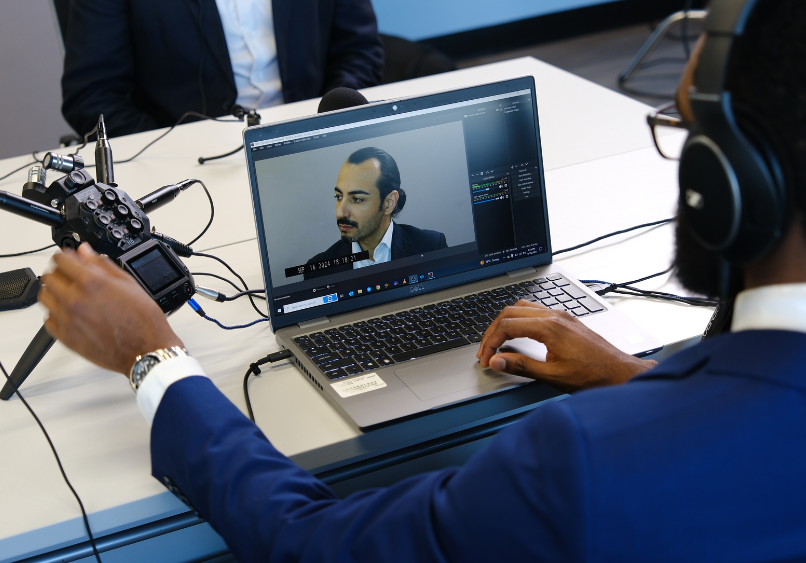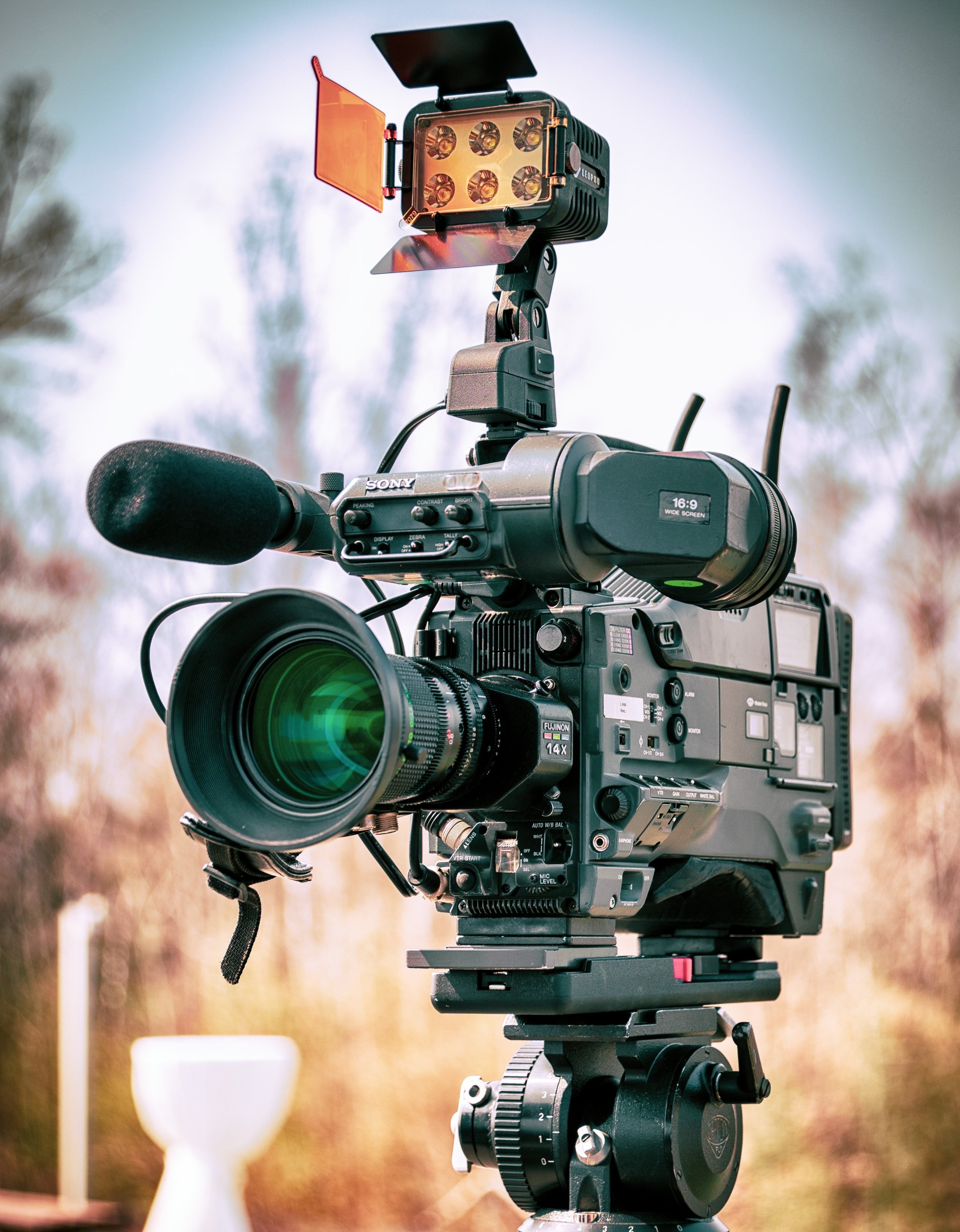Understanding the Inclusions Provided by Legal Videographers in Court Process
Legal videographers are crucial in court procedures, providing a variety of services that assure precise documentation of testaments and depositions. Their know-how in utilizing innovative devices permits for top notch sound and video clip capture, which can especially affect instance results. Nonetheless, the process includes more than just recording. Recognizing the particular incorporations these professionals use discloses how they promote the integrity of the judicial system while attending to various legal and ethical factors to consider.
The Duty of Legal Videographers in Court Proceedings
Although the function of legal videographers might typically go undetected, their payments in court proceedings are essential. legal videographers. These specialists are accountable for capturing and preserving aesthetic proof that can considerably influence the end result of legal instances. By recording depositions, witness testaments, and other vital minutes, legal videographers assure that exact documents are readily available for testimonial by judges, courts, and lawyers. Their experience in utilizing specific devices permits high-grade sound and video clip recordings, which can clear up complicated testimonies and enhance the overall understanding of the case. On top of that, legal videographers are educated to stick to legal requirements and protocols, making certain that the video is permissible in court. Via their thorough job, they offer a necessary solution that supports the judicial procedure and aids in the pursuit of justice, making their duty crucial in the domain name of law
Sorts Of Video Clip Services Used
Legal videographers offer a variety of important video clip services customized to the requirements of the legal area. Secret offerings include deposition recording strategies, trial documentation solutions, and evidence discussion options. Each service plays an essential function in boosting the clearness and performance of legal procedures.
Deposition Recording Techniques
When a deposition is tape-recorded, numerous methods can be used to guarantee the precision and effectiveness of the procedures. Legal videographers frequently make use of high-definition electronic cameras to catch clear visuals, making certain that body language and expressions are recorded. Multiple video camera angles might be utilized to offer substantial protection of the witness and bordering environment. In addition, synchronized audio recording is essential; premium microphones record talked testimony without interference. Videographers may likewise apply real-time transcription solutions, allowing for instant accessibility to spoken content. Illumination factors to consider are necessary, as appropriate illumination improves video clip quality. By using these techniques, legal videographers create a precise, trustworthy document that can be referenced in future legal contexts, cultivating an extra efficient judicial process.
Test Paperwork Provider
A selection of test documents solutions are readily available to help with the accurate recording of courtroom proceedings. Legal videographers offer several vital solutions, consisting of real-time video recording, which captures every minute of the test as it unravels. In addition, they provide multi-camera arrangements to assure considerable insurance coverage of all participants and actions. High-def video clip top quality is standard, permitting clear visuals that can be substantial for later evaluation. legal videographers. Videographers may also supply audio recording solutions to catch dialogue and courtroom exchanges with quality. Additionally, some legal videographers focus on synchronized video clip and transcript services, making it possible for smooth integration for referencing throughout charms or future hearings. These solutions collectively boost the legal procedure by guaranteeing thorough documents of trial tasks
Evidence Discussion Solutions
Various evidence discussion solutions are readily available to enhance the performance of courtroom debates. Legal videographers provide a selection of video solutions tailored to satisfy the demands of legal procedures. These solutions consist of video depositions, which record witness statements for later use, and trial presentation videos that sum up case proof aesthetically. In addition, legal videographers can create real-time video feeds of court proceedings, allowing remote participants to engage efficiently. Other offerings may involve the manufacturing of computer animations or simulations to show complicated principles. By integrating these video clip remedies, attorneys can offer their cases much more clearly and persuasively, ultimately assisting jurors in recognizing the proof and facilitating enlightened decision-making during trials.
Significance of High-Quality Equipment
The quality of devices used by legal videographers directly affects the criteria of their work and the outcomes of legal situations. Top quality technology not just enhances video clip clarity but additionally aligns with emerging fads in the field. As legal demands develop, the value of buying remarkable tools comes to be increasingly evident.
Tools Top Quality Standards
Premium equipment is important for legal videographers to generate clear and dependable recordings that can hold up against analysis in legal procedures. Devices quality standards incorporate numerous elements, including cameras, microphones, and lights. Professional-grade cams ensure high-resolution video capture, while high-fidelity microphones record exact sound, lessening background sound. Furthermore, proper lights is essential to avoid shadows and improve visibility throughout recordings. Legal videographers need to also use reputable storage space options to safeguard electronic data from corruption or loss. Abiding by these requirements not just improves the overall top quality of the recordings however additionally ensures that the proof presented in court keeps its integrity. Subsequently, investment in high-quality tools is not merely an option yet a necessity for legal videographers.
Effect On Case Outcomes
When legal procedures rest on the clarity of documented proof, the impact of tools high quality comes to be critical. High-quality videography can considerably affect case outcomes by supplying clear, exact depictions of testimonies and occasions. Making use of advanced video cameras, microphones, and illumination assurances that sound and aesthetic components are captured without distortion, enabling juries and courts to comprehend the subtleties of an instance. Alternatively, subpar equipment might lead to vague recordings, resulting in misconceptions and possibly detrimental decisions. Legal videographers geared up with advanced innovation improve the dependability of evidence presented in court, cultivating an extra engaging story. Eventually, the caliber of equipment used directly correlates with the efficiency image source of legal disagreements, highlighting the significance of investing in superior videography capabilities.

Technology Trends in Videography
Advancements in videography innovation proceed to shape the landscape of legal paperwork. High-grade equipment, such as 4K video cameras and progressed stereos, enhances the clarity and dependability of videotaped testimonies and courtroom procedures. Legal videographers make use of these tools to guarantee that every detail is caught properly, which is critical for both the legal process and evidentiary purposes. Furthermore, the assimilation of electronic editing and enhancing software enables effective post-production work, allowing videographers to existing polished, expert video clips. The change towards remote depositions likewise emphasizes the demand for trusted streaming modern technology, assuring that all parties can participate effectively. As technology evolves, legal videographers must stay existing to give the ideal possible solution, inevitably influencing the general high quality of legal paperwork.
Getting ready for a Video Deposition
Planning for a video clip deposition calls for mindful planning to guarantee that all technological and logistical facets are attended to. Legal teams have to first pick an ideal place that reduces interruptions and assures discretion. Next, they should validate the accessibility of necessary tools, including cameras, microphones, and lights, to enhance video clip quality (legal videographers).Scheduling is essential; all celebrations entailed have to settle on a date and time that accommodates their schedules. Before the deposition, a complete review of pertinent files and instance materials is necessary to verify the witness is well-prepared. Additionally, carrying out a pre-deposition conference can assist make clear the process and synopsis expectations. Verifying that the technological team is briefed on the particular needs and the flow of the deposition will certainly facilitate a smooth recording. By attending to these components, legal groups can meaningfully improve the efficiency and integrity of the video deposition
Modifying and Post-Production Providers
Editing and post-production services play a crucial duty in boosting the top quality and effectiveness of video depositions. Legal videographers use these solutions to improve footage, guaranteeing that the last item is both clear and professional. This process commonly consists of getting rid of unneeded segments, correcting audio issues, and changing lights to give a sleek presentation.Furthermore, aesthetic components such as graphics or annotations may be added to highlight important points, making the video much more easily accessible for customers. The unification of high-grade changes and results can aid preserve customer involvement, which is essential throughout court proceedings.Additionally, editing and enhancing permits for synchronization of video and audio, guaranteeing that spoken words line up precisely with visual cues. This attention to information not just aids in comprehension yet additionally protects the honesty of the taped statement. In general, effective editing and enhancing and post-production solutions are vital in delivering an engaging narrative in legal contexts.
Legal and Ethical Factors To Consider
Many legal and ethical factors to consider border the practice of legal videography, influencing just how video clip depositions are conducted and made use of. Legal videographers need to follow rigorous guidelines to ensure the integrity of the taped material. They are required to keep impartiality, preventing any kind of actions that can influence witness testament or the perception of the proof. Additionally, authorization from all celebrations entailed is important; failing to obtain it can bring about legal ramifications.Ethically, videographers should determine their recordings are unchanged and accurately stand for the process. This includes sticking to confidentiality contracts and shielding delicate information. In addition, clear communication relating to the objective and use the recordings is necessary to maintain transparency. By promoting these legal and moral standards, legal videographers contribute to the reputation of the court procedure and sustain the reasonable management of justice.
Impact of Videography on Case Outcomes
The integrity and adherence to legal and honest requirements in videography not just support the recording's integrity yet additionally greatly influence situation results. High-grade video clip proof can give jurors with a clear and compelling depiction of occasions, enhancing their understanding of the case. When videographers follow established methods, the resulting video is more probable to be admitted right into court, therefore reinforcing an event's placement. Alternatively, inadequately executed videography can bring about inquiries pertaining to credibility and dependability, potentially undermining a case.Furthermore, the psychological effect of video clip can guide jurors' viewpoints, as visual evidence often evokes a stronger reaction than written accounts. In high-stakes instances, the expert discussion of videographic evidence can mean the distinction between a beneficial judgment and a loss. The function of legal videographers is vital, as their job not only documents procedures but additionally has the power to shape legal stories and affect judicial end results.

Regularly Asked Questions
What Certifications Should I Seek in a Legal Videographer?
When selecting a legal videographer, one ought to take into consideration that site qualifications such as accreditation, website link experience in legal settings, knowledge of court procedures, efficiency in devices, and solid interaction abilities to assure accurate and dependable paperwork of procedures.
Exactly How Do Legal Videographers Make Sure Discretion Throughout Recordings?
Legal videographers maintain privacy by employing protected recording methods, utilizing encrypted storage, and sticking to rigorous legal methods. They commonly require confidentiality agreements to protect delicate details during court proceedings and guarantee conformity with personal privacy guidelines.

Can I Ask For Particular Angles or Picture During the Video?
People frequently question requesting certain angles or shots during video clip recordings. Usually, legal videographers accommodate such requests within reason, making sure that the recordings remain clear, inconspicuous, and compliant with court procedures and requirements.
What Is the Typical Turnaround Time for Video Clip Delivery?
The regular turnaround time for video clip distribution varies relying on the complexity and size of the footage. Typically, it varies from a few days to numerous weeks, contingent upon the videographer's work and particular task requirements.
Exactly How Do Video Clip Recordings Impact Witness Statement in Court?
Video clip recordings considerably affect witness testament in court by supplying aesthetic evidence that improves credibility, preserves the temperament and expressions of witnesses, and allows jurors to engage more deeply with the statement provided during the test.
Comments on “The role of legal videographers in ensuring compliance with legal video standards”